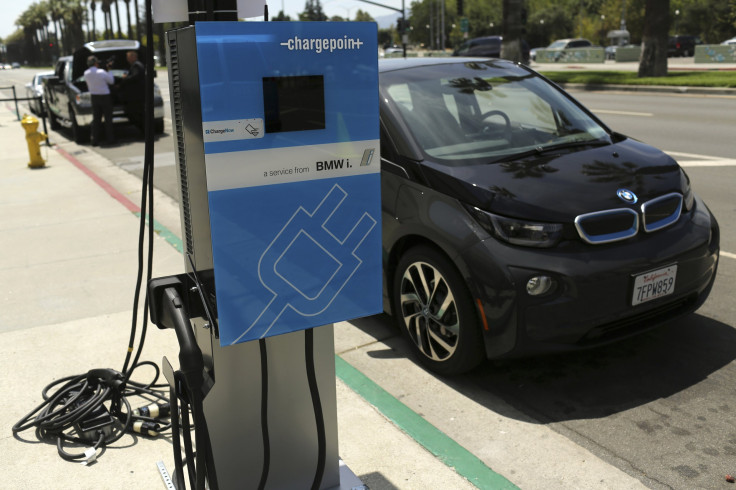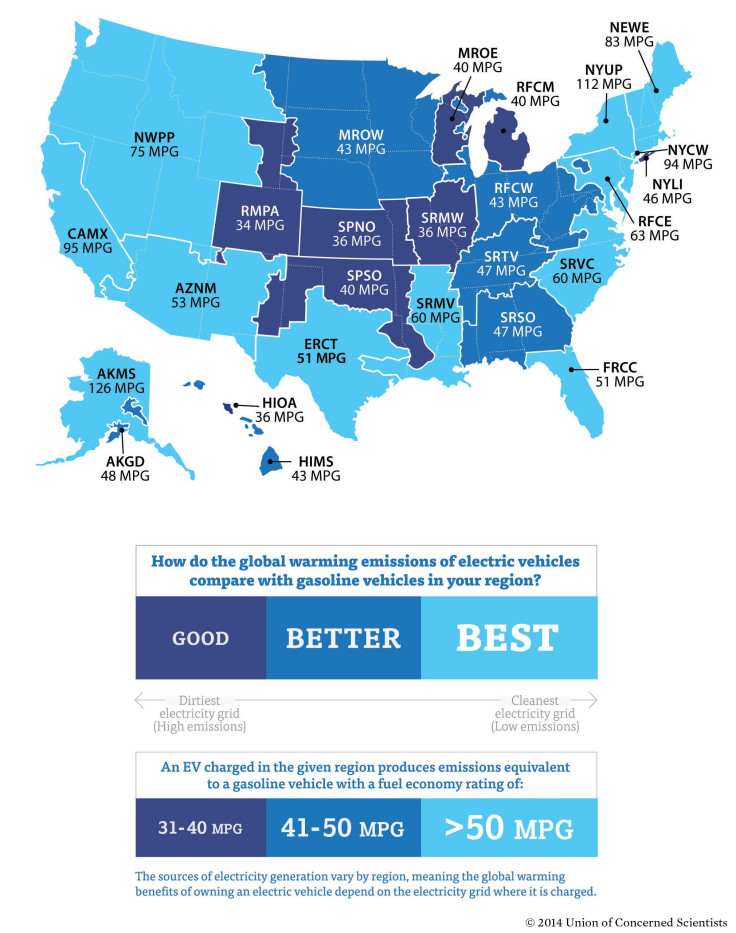Electric Vehicle Pollution: Plugging In A Car May Not Be As Clean As You Think, But It's Getting Cleaner, Thanks To Natural Gas

If you own an electric vehicle in the United States, you might not be doing as much to save the environment as you think. After all, once you plug in one of these cars, a power plant somewhere has to cook a little bit more coal, which leads to more greenhouse gases spewed into the atmosphere. And the environmental impact of EV ownership varies greatly depending on where you live, thanks to how different parts of the country generate electricity.
The latest research from the Union of Concerned Scientists shows electric vehicles are less responsible for greenhouse gas emissions than they were just three years ago, in large part because of the increase in hydraulic fracturing, the controversial natural gas extraction method that has become Enemy No. 1 for some environmental groups. As natural gas replaces coal, power plant emissions decline.

The study by the science advocacy group shows the benefits of electric cars based on geography. Just three years ago, more than half of Americans lived in parts of the country where EVs weren’t much better than gasoline-hybrids in terms of greenhouse gas emissions. Today, it's about 40 percent.
As the group’s map shows, driving an EV in New York, a state that draws a lot of power from hydroelectric and nuclear, is responsible for the same amount of greenhouse emission as a car with a fuel economy rating of 112 miles to the gallon. But in Colorado, a state more heavily reliant on coal than others, an EV is emitting global warming gases equivalent to a car that gets 34 mpg, more than some gasoline-hybrids available in the market.
“There’s much to be said for natural gas compared to coal,” Richard Liroff, executive director of Investor Environmental Health Network, told International Business Times on Wednesday. “When you burn coal you get mercury and sulfur dioxide emissions. And you’ve also got the occupational exposure to coal mining, like black lung. There’s mountaintop removal, which has significant environmental impact. And then you also have coal ash to store safely.”
Steve Clemmer, director of clean energy research at the Union of Concerned Scientists, agrees, but says the shift to natural gas alone doesn't come close to meeting U.S. greenhouse gas reduction goals. As the group's EV study points out, the country needs to do more to incorporate solar and wind power into the patchwork of national electrical grids. In fact, one of the reasons why Texas has managed to make EVs cleaner in recent years is because of its national lead in installing wind power infrastructure.
“We’re trying to caution people on becoming overly reliant on natural gas,” Clemmer told IBTimes. “If we are to meet long-term reduction targets, switching to natural gas won’t solve that.”
Clemmer says reducing greenhouse gas emissions in accordance to goals set by the United States will require a combination of factors, of which natural gas is just one. Electricity consumption needs to go down through a combination of energy conservation and a wider embrace of wind and solar energy.
Some electric vehicle owners might not be doing as much for the environment as they think they are by driving their Nissan Leafs, Tesla Model Ss or BMW i3s, but one thing they can be certain of: EVs are better for the environment than any gas-burning car, period.
© Copyright IBTimes 2025. All rights reserved.






















